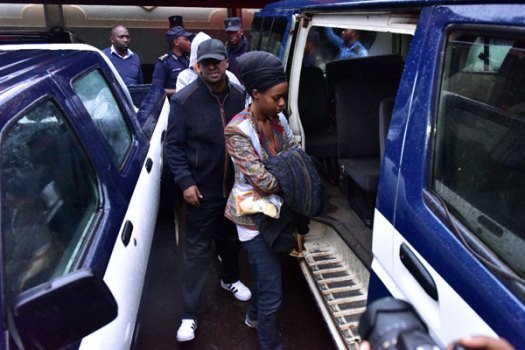The Ministry of Health is withholding the Johnson and Johnson (J&J) COVID -19 vaccines which arrived in the country in early October. Experts attribute the delay to the challenge of the short–shelf life of other vaccines being distributed in the country.
The country received the first batch of Johnson and Johnson consisting of 196,800 doses on October 8 and to date, a total of 650,000 doses of the single-dose drug have arrived. But they have since been shelved raising questions especially among people who prefer a single dose jab.
While speaking to journalists on Friday, Dr Tegnen Woldermariam the World Health Organisation (WHO) Uganda Country Representative said these jabs are not about to be used, noting that officials had to make a choice to withhold the jabs in order to utilize those that will soon expire.
Woldermariam says while vaccination is voluntary and one reserves a choice to pick whatever jab they feel safe using, the principle doesn’t apply to the government which is striving to have as many people as possible vaccinated and yet has limited supplies.
Uganda is supposed to get a total of nine million doses of Johnson and Johnson that the government ordered the African Union Pre-ordering mechanism but so far the country has generally depended on donations for the over two million doses that they have been dispensed. Many of the jabs have been brought with a shelf –life of fewer than four months to expire.
A total of 8, 912,810 doses have been received in the country and Health Minister Dr Jane Ruth Aceng says of these, 3.9 million doses have already been utilized. She says they plan to have reached 4.8 million Ugandans by December and they are moving fast to ensure that they don’t experience any wastages since some of the drugs will soon expire.
Aceng for instance notes that apart from earlier designated vaccination points, the Ministry will in the coming days embark on doing mass vaccination campaigns and outreaches closer to the community. Starting Monday she says, they will be holding mass vaccinations in regions starting with the hotspots of Teso, Lango and Acholi.
So far, however, only 749,126 Ugandans have been fully vaccinated, which accounts for only 3.7 per cent of the priority populations of teachers, security personnel, health workers and people with co-morbidities that were initially targeted.
The plan by the government is to have 22million Ugandans vaccinated by end of next year. Most of these vaccinations will happen in the New Year since they expect only about 4million vaccine doses more this year. By end of this year, Aceng says the country will have received 12,288,750 doses which are a mix of Pfizer/BioNTech, AstraZeneca, Moderna, Sinovac, Sinopharm and Johnson and Johnson vaccines.
Meanwhile, according to requirements by WHO, vaccines used under an arrangement of Emergency Use Listing (EUL) should have a short life span not longer than a year because they are being used prematurely to beat the public health emergency.
-URN





